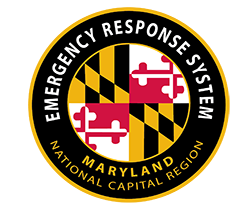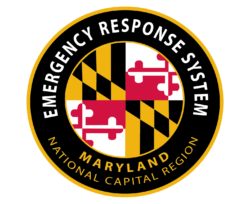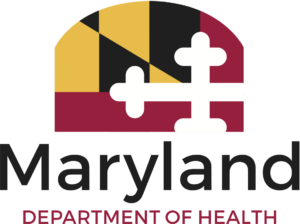
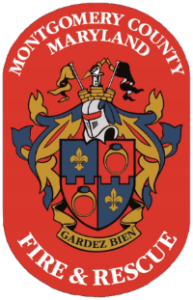 Montgomery County Fire and Rescue Service
Montgomery County Fire and Rescue Service
The Montgomery County (MD) Fire and Rescue Service (MCFRS), an accredited agency, is a full spectrum life safety agency protecting about 500 square miles and over 1 million people who live and work in Maryland’s most populous jurisdiction. MCFRS is a combination system (volunteer/career) in the suburban Washington, D.C. area, operating with an annual budget of about $220 million dollars. The MCFRS annually handles over 120,000 emergency calls for service and is staffed by nearly 2,700 certified and trained career and volunteer responders.
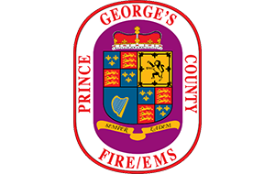 Prince George’s County Fire and EMS Department
Prince George’s County Fire and EMS Department
Prince George’s County, Maryland, is a diverse and multicultural community bordering the eastern edges of our Nation’s Capital. The Prince George’s County Fire and Emergency Medical Services Department responded to a total of over 169,560 calls for service last year.
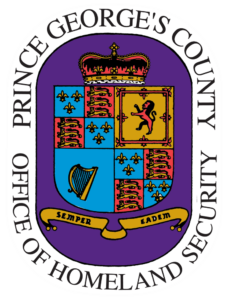 Prince George’s County Office of Homeland Security and Emergency Management
Prince George’s County Office of Homeland Security and Emergency Management
The Prince George’s County Office of Homeland Security and Emergency Management (OHS/EM) coordinates the County’s response to natural and man-made disasters. OHS/EM is responsible for emergency preparedness, coordination of response and recovery activities, and mitigation planning. OHS/EM is the County’s liaison with local, state, and federal officials in all aspects of emergency management.
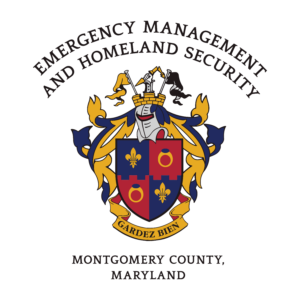 Montgomery County Office of Emergency Management and Homeland Security
Montgomery County Office of Emergency Management and Homeland Security
The Montgomery County Office of Emergency Management and Homeland Security (OEMHS) plans, coordinates, prevents, prepares for, and protects against major threats that may harm, disrupt, or destroy our communities, commerce, and institutions. OEMHS works to effectively manage and coordinate the County’s unified response, mitigation, and recovery from the consequences of such disasters or events should they occur.
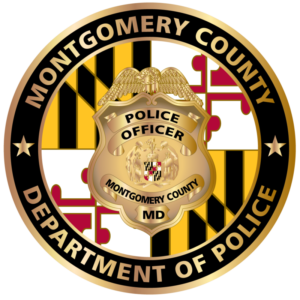 Montgomery County Police Department
Montgomery County Police Department
The Montgomery County Department of Police, located in Montgomery County, Maryland, includes approximately 1,300 sworn officers and approximately 700 support personnel.
The Police Department is structured into the Office of the Chief under which is the Internal Affairs Division, and then four major bureaus: the Field Services Bureau, the Investigative Services Bureau, the Management Services Bureau, and the Patrol Services Bureau. The Patrol Services Bureau, the largest and most visible bureau in the Police Department, oversees the majority of the Department’s uniformed officers on patrol. The Patrol Services Bureau is divided into six police districts.
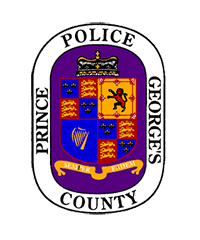 Prince George’s County Police Department
Prince George’s County Police Department
The Prince George’s County Police Department is the fourth largest law enforcement agency in the State of Maryland. More than 1,500 police officers and 300 civilians provide a full range of law enforcement services to nearly 900,000 residents and business owners. Prince George’s County Police Department is proud to provide service to a diverse demographic and geographic area.
![]() Montgomery County Department of Health and Human Services
Montgomery County Department of Health and Human Services
DHHS is the largest department in County government, and are responsible for public health and human services that help address the needs of our community’s most vulnerable children, adults, and seniors. We have more than 120 programs and deliver services at more than 20 locations in Montgomery County.
Our core services protect the community’s health, protect the health and safety of at-risk children and vulnerable adults and address basic human needs, including food, shelter, and clothing.
Our department provides services through several service areas: Aging and Disability Services; Behavioral Health and Crisis Services; Children, Youth, and Family Services; Public Health Services and Special Needs Housing. Our Office of Community Affairs provides direct services through several programs. In addition, our administrative functions include budget administration, fiscal administration, contract management, facilities, grant acquisition, human resources, information systems and performance management.
 Prince George’s County Health Department
Prince George’s County Health Department
The Prince George’s County Health Department’s (PGHD) vision is to foster a community where all Prince Georgians are their healthiest at every age and stage. PGHD provides policies and services that are culturally appropriate and acceptable. PGHD partners with individuals and organizations to lead, engage, and empower our community to work collaboratively towards disease prevention, health equity, and total well-being.
![]() University of Maryland Capital Region Health
University of Maryland Capital Region Health
UMMC is a not-for-profit healthcare system serving the citizens of Prince George’s County and the surrounding area.
Founded in 1963 by the Sisters of the Holy Cross, Holy Cross Health is a leading Catholic, not-for-profit health system serving Maryland’s Montgomery and Prince George’s counties. As a member of Trinity Health, one of the nation’s largest multi-institutional Catholic healthcare delivery systems, Holy Cross Health provides trusted healthcare services. Our flagship, Holy Cross Hospital, in Silver Spring, is among Maryland’s largest, while Holy Cross Germantown Hospital, the nation’s first on a community college campus, reflects our commitment to education. The Holy Cross Health Network operates primary care practices, affordable health centers, and community-based wellness programs, aiming to enhance lives and well-being. In 2023, Holy Cross Health contributed nearly 10% of its $600 million revenue to community benefit activities that meet community needs and improve access to health.
![]() Luminis Health Doctors Community Medical Center
Luminis Health Doctors Community Medical Center
Luminis Health is a network of medical and surgical services provided throughout Prince George’s County and in Anne Arundel County. At the heart of this network is our flagship – Doctors Community in Lanham, Maryland. To complement our high-quality and compassionate services, the system has more than a dozen centers of care in Bowie, Camp Springs, Crofton, District Heights, Greenbelt, Hyattsville, Lanham, Largo, Laurel, Riverdale and Temple Hills.
![]() Suburban Hospital
Suburban Hospital
Suburban Hospital, a member of Johns Hopkins Medicine, is a not-for-profit, acute-care, medical-surgical hospital in Bethesda, Maryland with a focus on complex care. The designated trauma center for Montgomery County, Suburban Hospital offers medical, surgical, intensive care, oncology, inpatient and outpatient behavioral health programs, an addiction treatment center, a 24-hour stroke team and a full-service emergency department that treats both adult and pediatric patients. Cardiac surgery services are provided by Johns Hopkins Cardiothoracic Surgery at Suburban. Radiation and surgical oncology are part of the Johns Hopkins Kimmel Cancer Center for the National Capital Region.
Adventist HealthCare is a faith-based, nonprofit health system serving Montgomery and Prince George’s counties in Maryland and Washington, D.C. Our 10,000 team members work to improve health and well-being through the ministry of physical, mental and spiritual healing. Our comprehensive services include acute-care hospitals, physical rehabilitation, mental health, physician practices, cancer centers, imaging and home care.
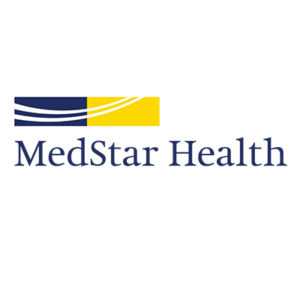 MedStar Health
MedStar Health
MedStar Health strives to provide the highest quality care for people in Maryland, Virginia, and Washington, D.C., with compassion and respect. We know that our ability to treat others well begins with how we treat each other. Our 30,000 associates and 5,400 affiliated physicians are committed to living our core SPIRIT values—Service, Patient first, Integrity, Respect, Innovation, and Teamwork—no matter where they work across our diverse health system.
![]() Maryland Institute for Emergency Medical Services Systems
Maryland Institute for Emergency Medical Services Systems
The Maryland Emergency Medical Services (EMS) System is a coordinated statewide network that includes volunteer and career EMS clinicians, medical and nursing personnel, communications, transportation systems, trauma and specialty care centers and emergency departments. The Maryland Institute for Emergency Medical Services Systems (MIEMSS) oversees and coordinates all components of the statewide EMS system in accordance with Maryland statute and regulation. This includes planning, operations, evaluation, and research. In addition, MIEMSS provides leadership and medical direction, conducts and supports EMS educational programs, operates and maintains a statewide communications system, designates trauma and specialty centers, licenses and regulates commercial ambulance services, and participates in EMS-related public education and prevention programs.
The Maryland Department of State Police is a full-service law enforcement agency whose sworn and civilian employees are committed to providing the highest quality police services. Our mission is to be a statewide force for a safer Maryland, and our Troopers and civilian support staff are dedicated to fulfilling that mission while upholding our core values of integrity, fairness, and service.
The Maryland State Police was organized in 1921 and charged with reducing crime and highway tragedies through statewide patrol and relentless enforcement of criminal and traffic laws. This directive has not changed and remains the focus of what we do each day. We are proud of our tradition of excellence in serving and protecting the people of Maryland.
Maryland’s health care delivery system consists of public and private hospitals, nursing homes, outpatient clinics, home health care services, hospices, providers, and health educators, among others. As a public health department, our goal is to improve the health status of every Maryland resident and to ensure access to quality health care. We are responsible for helping each person live a life free from the threat of communicable diseases, tainted foods, and dangerous products. To assist in our mission, we regulate health care providers, facilities, and organizations, and manage direct services to patients, where appropriate.
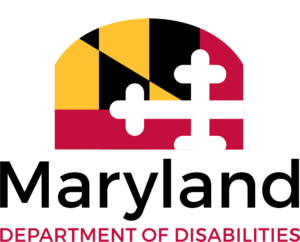 Maryland Department of Disabilities
Maryland Department of Disabilities
The Maryland Department of Disabilities (MDOD) is charged with coordinating and improving the delivery of services to individuals with disabilities in the state of Maryland. By working collaboratively with all State government agencies, MDOD provides advocacy and guidance to ensure that State entities deliver services in the most integrated settings possible, develop consistent policies affecting those with disabilities, and consider the diverse needs of all when making decisions which impact Marylanders. MDOD focuses on independence and full community membership through its programs which address accessible housing, employment, transitioning youth, community living, technology assistance, barrier free living, and transportation. This focus is one which consistently has an eye to economic growth through strengthening of a diverse workforce and provision of the efficient and effective supports necessary for full participation in our state’s economy.
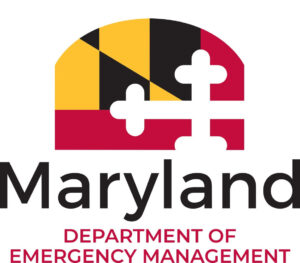 Maryland Department of Emergency Management
Maryland Department of Emergency Management
MDEM is a national leader in Emergency Management that provides Maryland residents, organizations, and emergency management partners with expert information, programmatic activities, and leadership in the delivery of financial, technical and physical resources “to shape a resilient Maryland where communities thrive.” We do this by being Maryland’s designated source of official risk reduction and consequence management information.
At the top of MDEM is the Office of the Secretary, and underneath are our three Directorates: Disaster Risk Reduction, Consequence Management, and Mission Support. This structure enables MDEM to efficiently support local jurisdictions, work with state agencies, run our internal operations, and provide preparedness information to the public.
